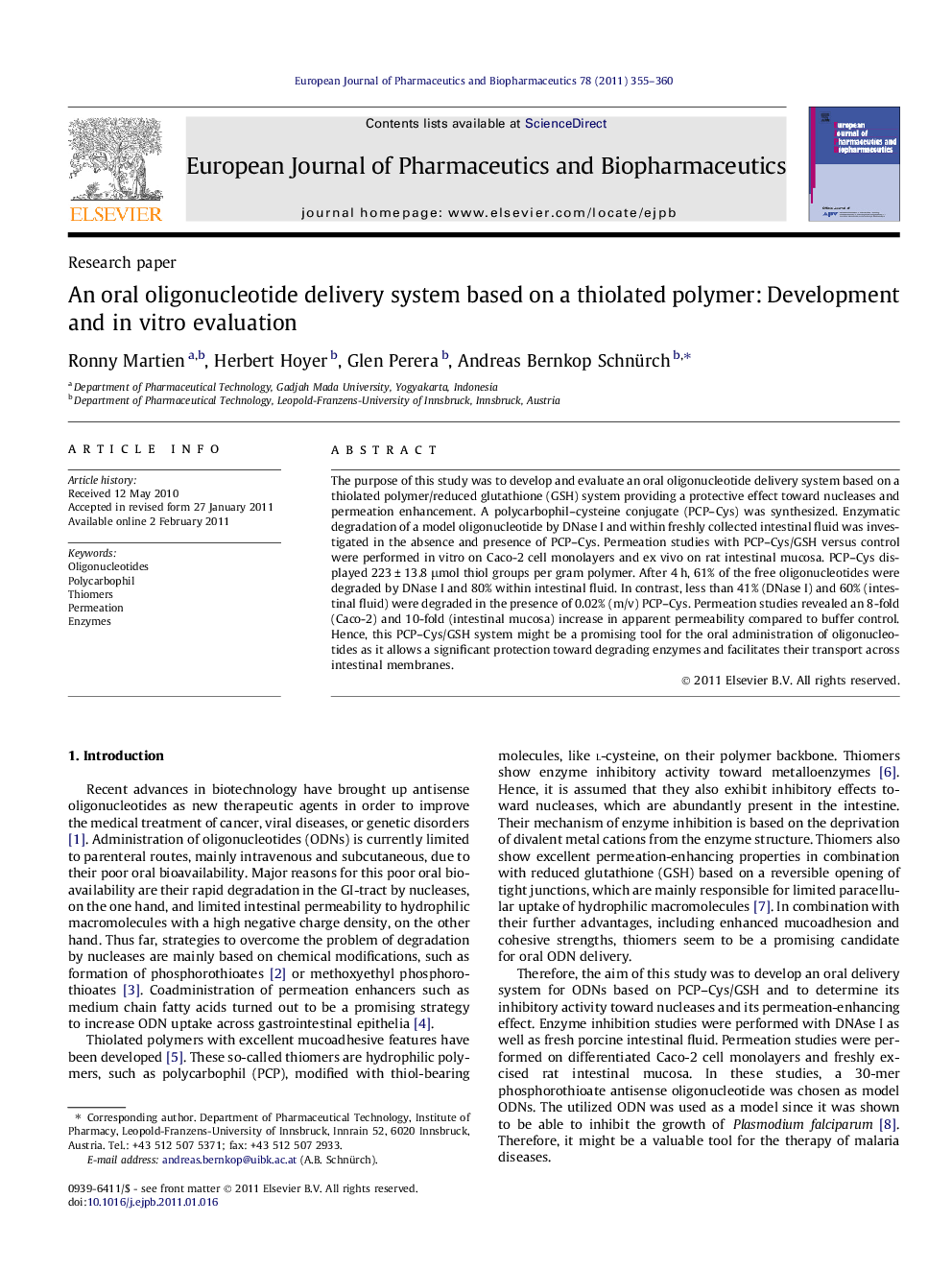| Article ID | Journal | Published Year | Pages | File Type |
|---|---|---|---|---|
| 2085468 | European Journal of Pharmaceutics and Biopharmaceutics | 2011 | 6 Pages |
The purpose of this study was to develop and evaluate an oral oligonucleotide delivery system based on a thiolated polymer/reduced glutathione (GSH) system providing a protective effect toward nucleases and permeation enhancement. A polycarbophil–cysteine conjugate (PCP–Cys) was synthesized. Enzymatic degradation of a model oligonucleotide by DNase I and within freshly collected intestinal fluid was investigated in the absence and presence of PCP–Cys. Permeation studies with PCP–Cys/GSH versus control were performed in vitro on Caco-2 cell monolayers and ex vivo on rat intestinal mucosa. PCP–Cys displayed 223 ± 13.8 μmol thiol groups per gram polymer. After 4 h, 61% of the free oligonucleotides were degraded by DNase I and 80% within intestinal fluid. In contrast, less than 41% (DNase I) and 60% (intestinal fluid) were degraded in the presence of 0.02% (m/v) PCP–Cys. Permeation studies revealed an 8-fold (Caco-2) and 10-fold (intestinal mucosa) increase in apparent permeability compared to buffer control. Hence, this PCP–Cys/GSH system might be a promising tool for the oral administration of oligonucleotides as it allows a significant protection toward degrading enzymes and facilitates their transport across intestinal membranes.
Graphical abstractPolycarbophil-cysteine potently inhibits nucleolytic degradation of oligonucleotides and significantly enhances their absorption across intestinal epithelia.Figure optionsDownload full-size imageDownload as PowerPoint slide
